Around Greenacres – Fall 2023

Around Greenacres - Fall 2023
Artists Weekend at Arts Center
In November, we welcomed 25 local artists for our inaugural Artist Weekend. The new three-day event was jam-packed with arts engagement, presentations by select attendees, relaxing hikes, and precious time to create art on the breathtaking Arts Center grounds.
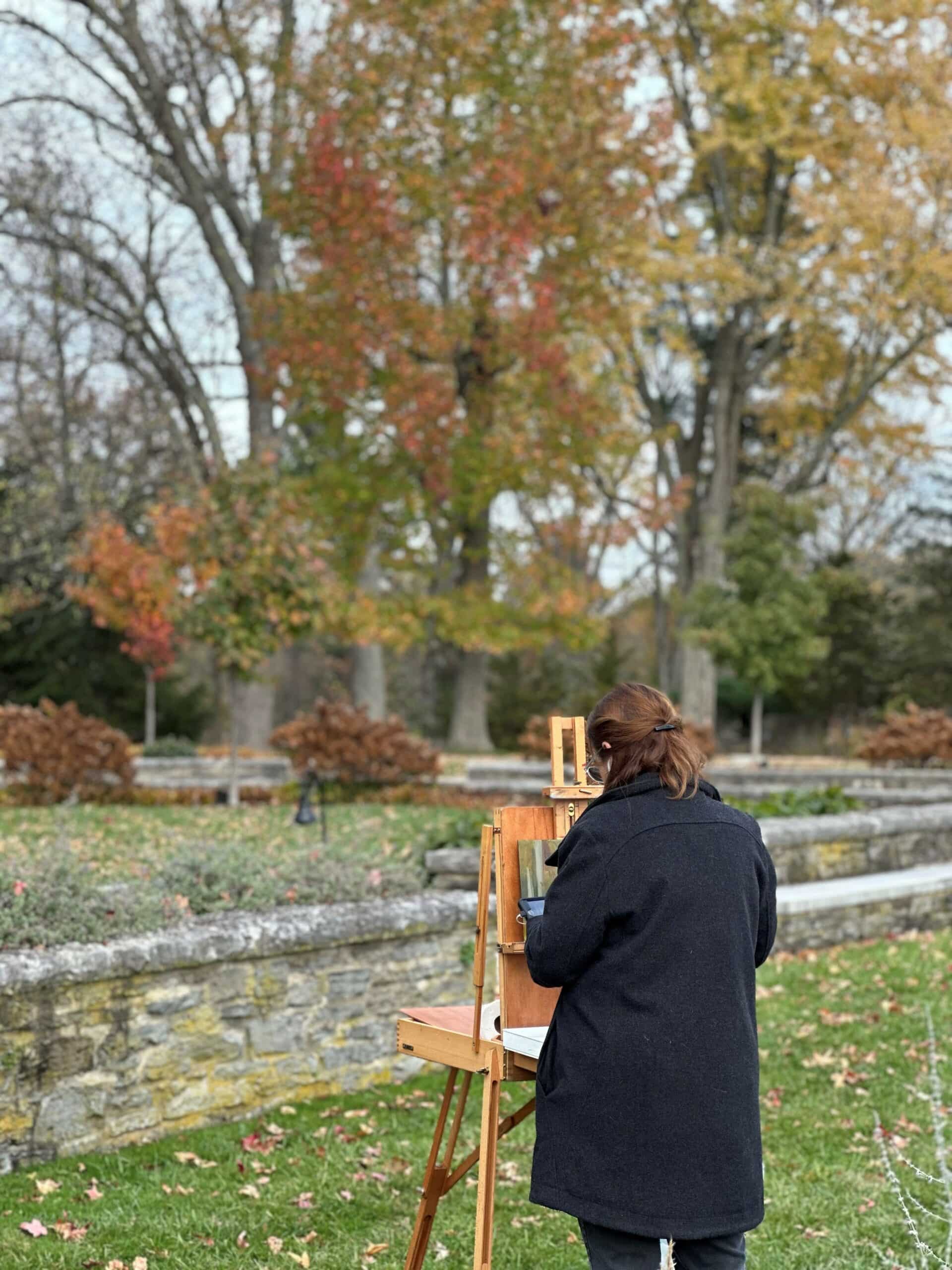
The Arts Team built the structure for the weekend, and the artists brought the concept to life. We have received an overwhelming amount of positive feedback. One attendee mentioned, “I have had writer’s block for six months until this weekend. I now have a new story–beginning, middle, and end.” Another artist commented, “Thank you so much for this beautiful weekend. It meant so much to me and I will hold the memories and experience so dearly. I still feel so honored to be allowed into that space.” The Greenacres team is excited about this new chapter of creativity, community-building, and growth and looks forward to hosting more events like this soon.
“I have had writer’s block for six months until this weekend. I now have a new story–beginning, middle, and end.”
“Thank you so much for this beautiful weekend. It meant so much to me and I will hold the memories and experience so dearly. I still feel so honored to be allowed into that space.”
Greenacres Artist Weekend Attendees
Growing our Apprentice Program
To help young farmers learn about regenerative farming systems and experience the practices first-hand, Greenacres has been offering two-year apprenticeships in both Gardens and Livestock. This year, as our program continues to grow, we’re improving our curriculum. With teaching methods intended to foster passion, curiosity, and exploration, we are helping develop well-rounded, confident farmers. Through intentional classroom time, informative field trips, and leadership opportunities, we aim to prepare young farmers to jump-start their careers in the regenerative farming world!
Click here to learn more about our garden apprenticeship, and click here to learn more about our livestock apprenticeship. We are currently accepting applications for both programs; if you know anyone interested, please encourage them to apply here!
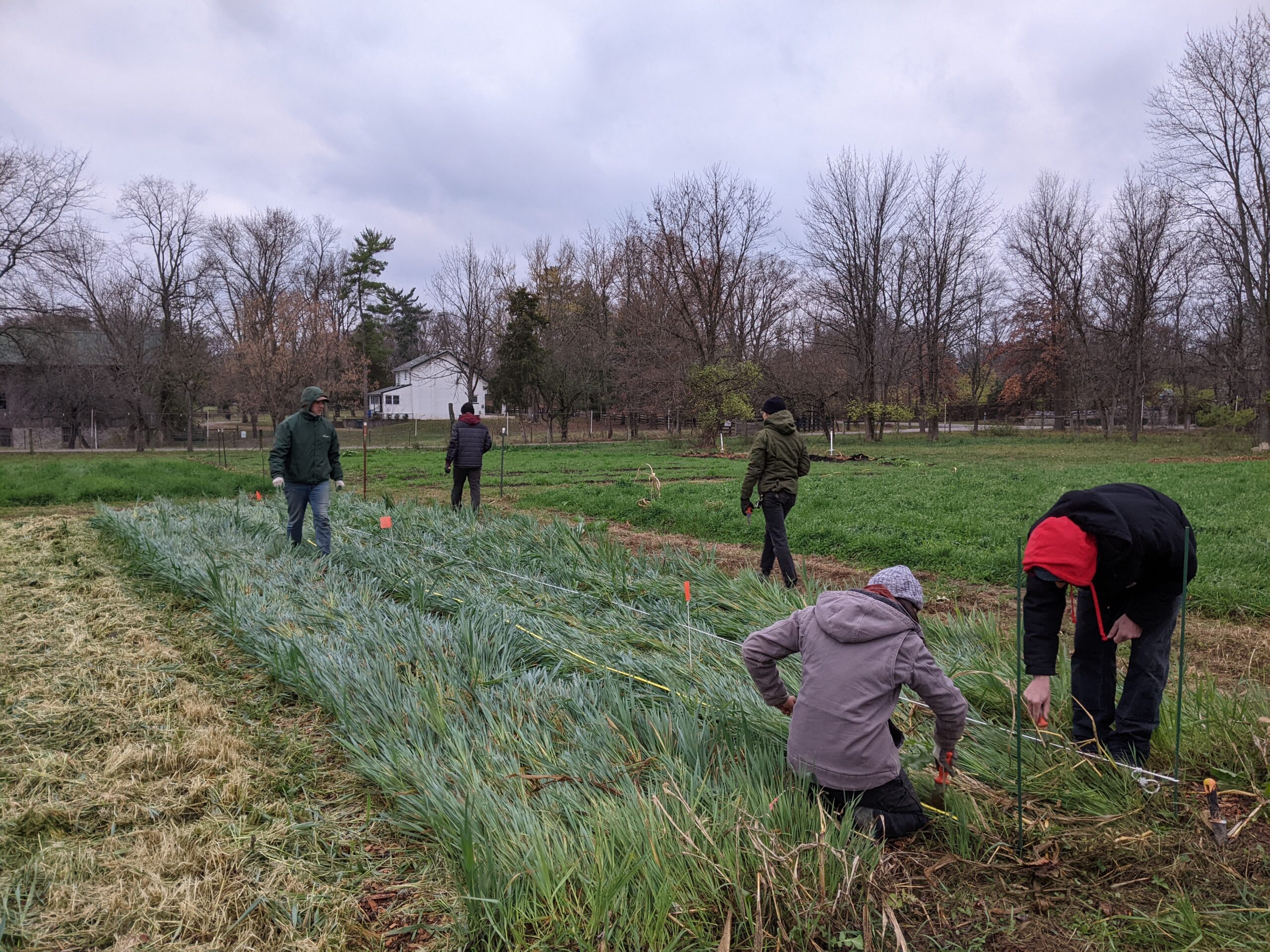
Sheep at Michaela Farm
Our growing sheep flock at Michaela Farm plays an important role in improving our soil health while bringing valuable lessons to our apprentices. Recently, our livestock team acquired 35 Katahdin ewes and a Dorper ram for our Indiana farm. These chunky breeds are ideal for high-quality lamb which we’re looking forward to providing in our Indian Hill Farmstore.
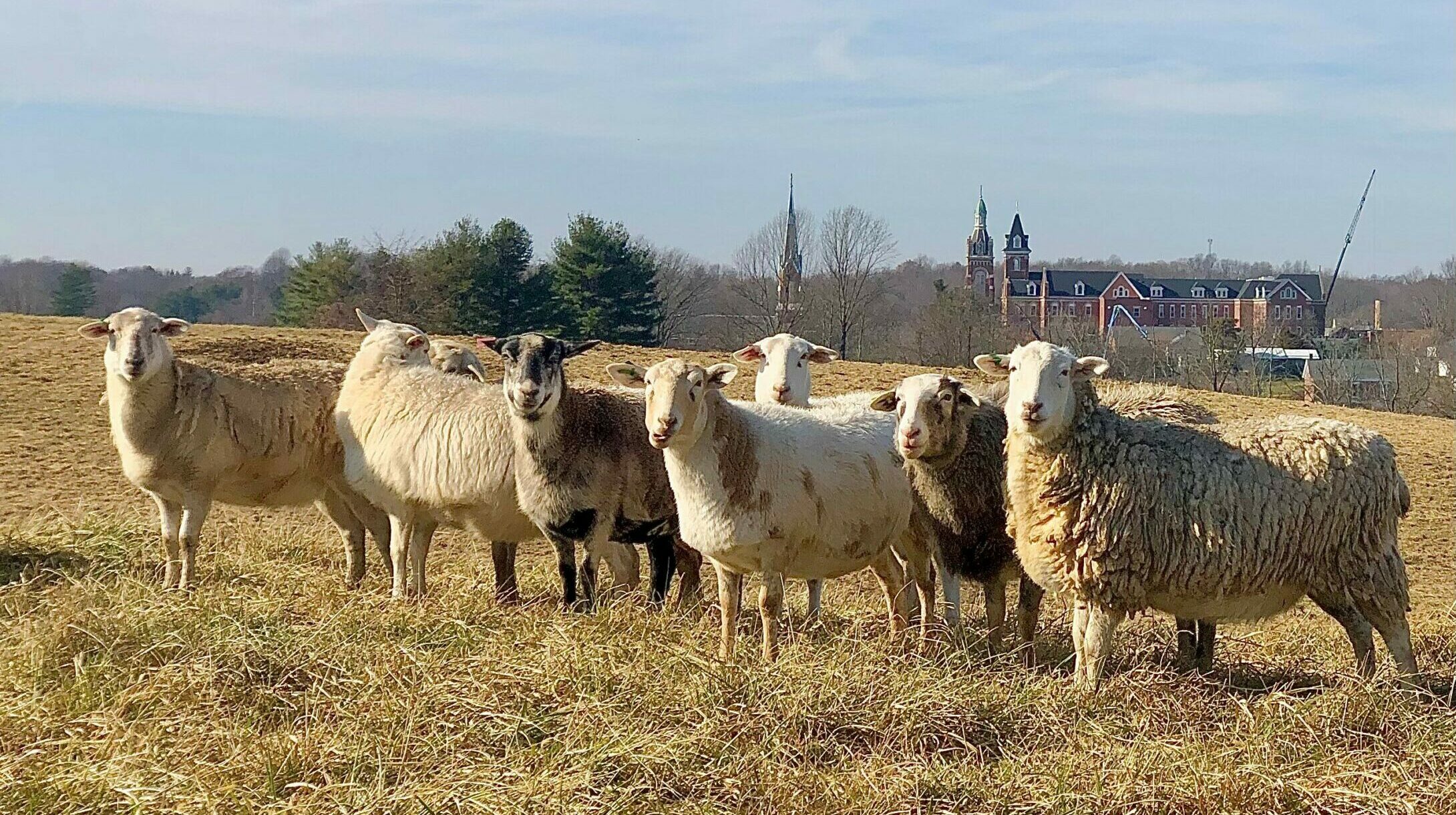
We have three properties at which livestock is raised: Indian Hill, Lewis Township, and Michaela Farm. Each of these properties has slightly different pastures and comes with its own set of challenges. Whether we’re dealing with increased predation or difficult terrain, allowing our apprentices to experience production at each site gives them a better understanding of the issues they may face on other farms.
Native Perennials at the Arts Center
We are transitioning the Arts Center gardens from annuals to perennials to help our move towards more sustainable systems. This shift aligns with our commitment to environmental responsibility and carries a host of benefits. Because this venue is also one of Ohio’s most sought-after wedding venues in addition to the educational programming it supports, we are working on blending aesthetics while remaining environmentally conscious.
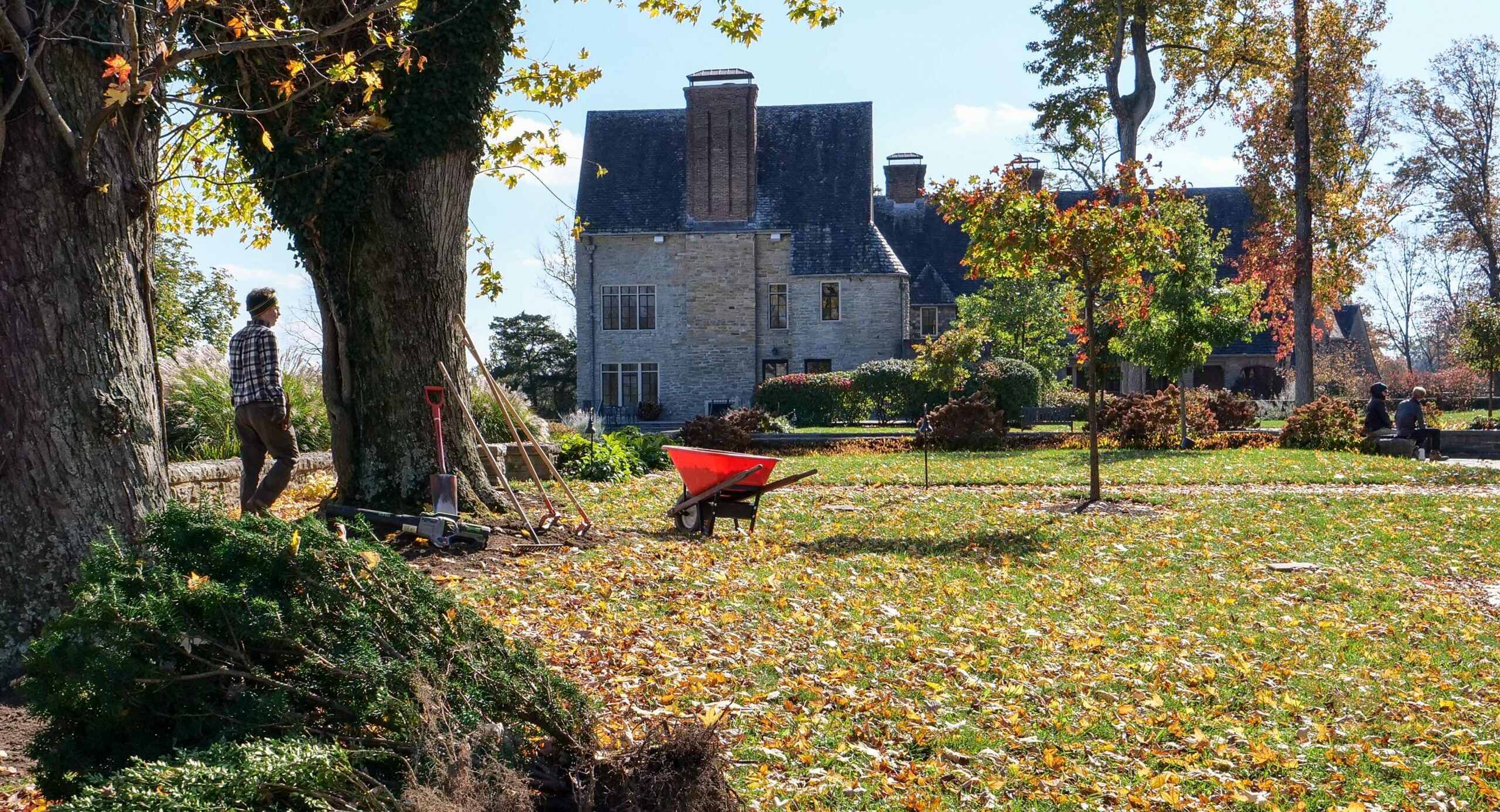
Sustainability and Environmental Impact: Perennial plants have a longer life cycle than annuals, reducing the need for frequent replanting. This shift aligns with Greenacres’ commitment to sustainable practices by minimizing the environmental impact of traditional annual plantings. Perennials require less water, fertilizer, and overall maintenance, contributing to an eco-friendlier and resource-efficient landscape.
Biodiversity and Ecosystem Support: Perennials play a crucial role in supporting local ecosystems by providing habitats for various pollinators, including bees and butterflies. The extended lifespan of perennial plants allows for establishing more stable and diverse ecosystems within the Greenacres grounds. This enhances the landscape’s beauty and promotes a healthier and more balanced local environment.
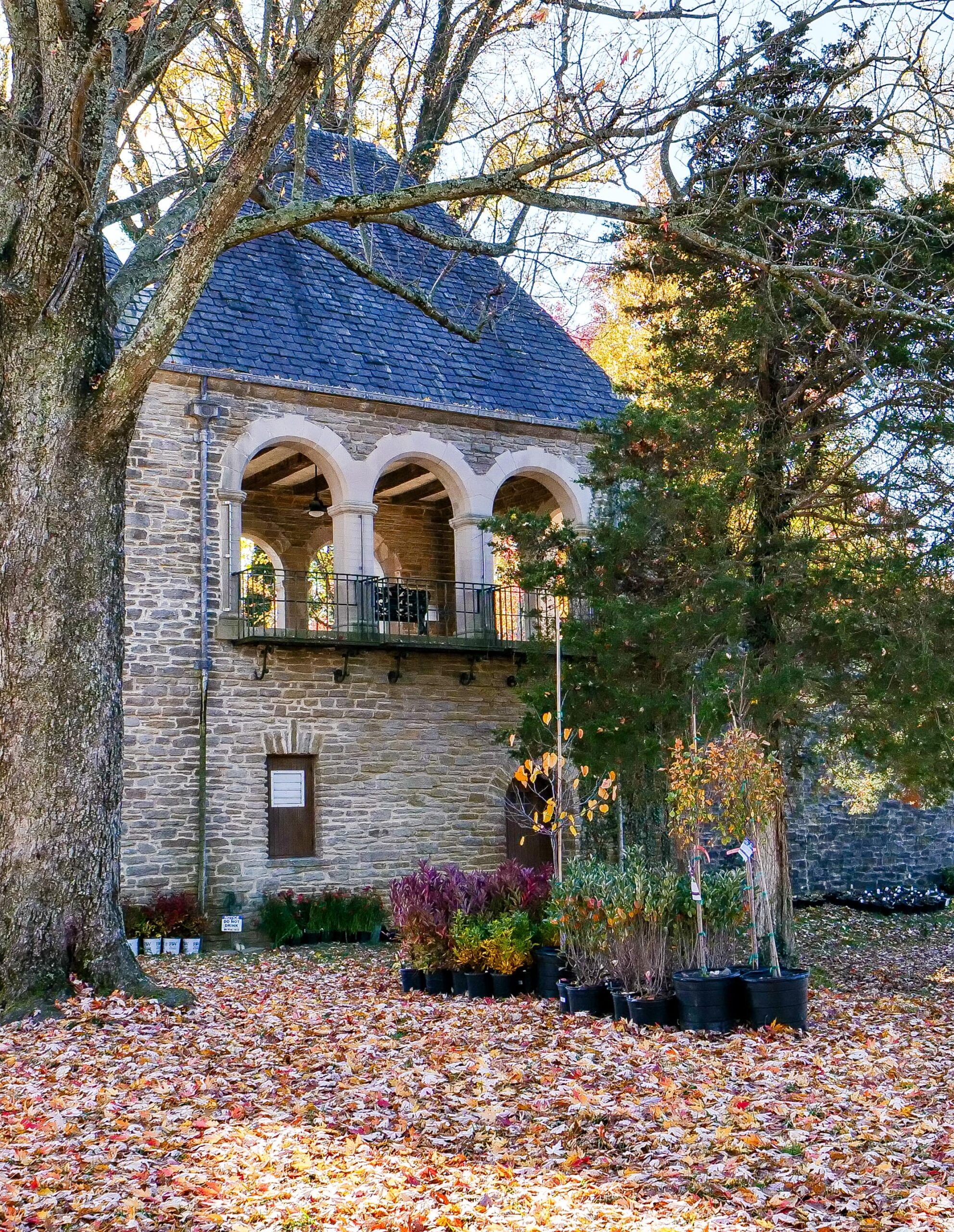
Cost-Efficiency and Long-Term Investment: While the initial investment in perennial plants might be higher than annuals, the long-term cost savings are substantial. Perennials require less frequent replacement, reducing the overall maintenance costs associated with landscaping. This shift is a testament to Greenacres’ commitment to responsible stewardship, emphasizing the long-term benefits of investing in perennial flora.
Aesthetic Appeal and Seasonal Variety: Contrary to the misconception that perennial landscapes lack variety, these plants offer a diverse range of shapes, colors, and bloom times. Greenacres can maintain its aesthetic appeal while enjoying the added benefit of year-round visual interest. The Arts Center’s picturesque surroundings will evolve with the changing seasons, providing visitors and event attendees with a dynamic and engaging experience.
Greenacres’ decision to switch from annual plantings to perennial plants represents a commendable step towards sustainable land management. The numerous benefits, ranging from environmental conservation to long-term cost savings, make this shift not only responsible but also forward-thinking. As the Arts Center continues to be a beacon of education and a coveted wedding venue, the perennial landscape serves as a testament to Greenacres’ dedication to creating a harmonious balance between human activities and the natural world.
100 Years in the Making: The Greenacres Arts Center
This past October, we celebrated 100 years of history at the Greenacres Arts Center. We hosted visitors in an open house-style event which included a self-guided tour of the facility, along with light appetizers and cocktails. Attendees had the opportunity to explore the craftsmanship, design principles, and innovative techniques that forged the iconic Cincinnati mansion. Informational placards were placed throughout the property to give guests an insight into the original construction methods as well as highlight the attention to detail involved in the remodeling. From the original Fleischmann Estate to Louis and Louise Nippert’s purchase and the creation of the Greenacres Arts Center we know and love today, the building’s history has turned it into a magnificent piece of our city’s heritage.
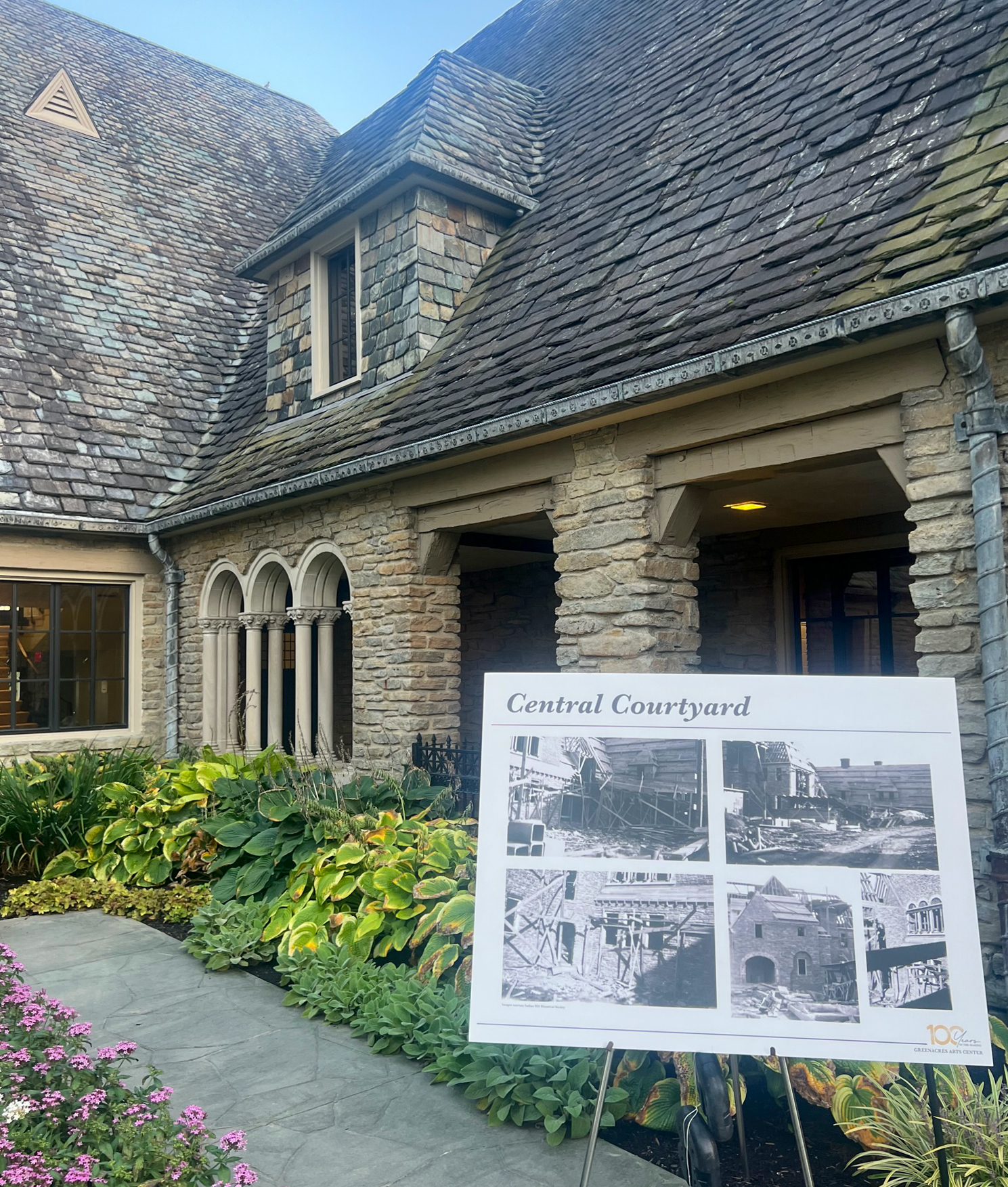
Metabolomics Study: Preliminary Data with Dr. van Vliet
In 2022, Greenacres introduced a unique research collaboration with Dr. Stephan van Vliet and Utah State University (USU). You can learn more about this project here. The research aims to study the connection between agricultural practices and human health using the science of metabolomics, which is the study of metabolites (small molecules such as organic acids, secondary compounds, vitamins, etc).
We are currently wrapping up the second (and final) year of the clinical trial, where study participants are undergoing dietary changes for 14 weeks. For 7 weeks the participants ate a diet of foods produced in an agroecological manner (e.g., pasture-based meats, eggs, and dairy, generative no-till vegetables) with the vast majority of those foods being raised at Greenacres. After a 2-week “washout period” (i.e. going back to their traditional “Western” diet), the participants wrap up the remaining 7 weeks by switching to a comparable whole foods diet as before, only this time the ingredients are grown using conventional practices (e.g., commodity feedlot raised meats, conventional eggs, dairy, vegetables and greens).
In October 2023, Dr. van Vliet visited Greenacres to report preliminary data from year one of the study. To reiterate, these were all preliminary data. The USU research team still has a lot of data to analyze prior to making any conclusions, however, the initial results showed some promising insights. Perhaps most importantly, irrespective of production practices, switching to a whole foods diet consisting of fresh meats, vegetables, grains, and dairy products has a beneficial effect on human health markers, including a 40% reduction in triglyceride levels. This is important because both diets were high in meat intake, often above the level that the participants reported as part of their normal diet. Also, the intent was for the participants to maintain their pre-study weight; however, participants on average lost weight. In addition to the improved health markers, there was also evidence to suggest that many of the agro-ecologically raised products displayed higher levels of metabolites, specifically several secondary compounds that are produced by plants and then found in pasture-raised meat products.
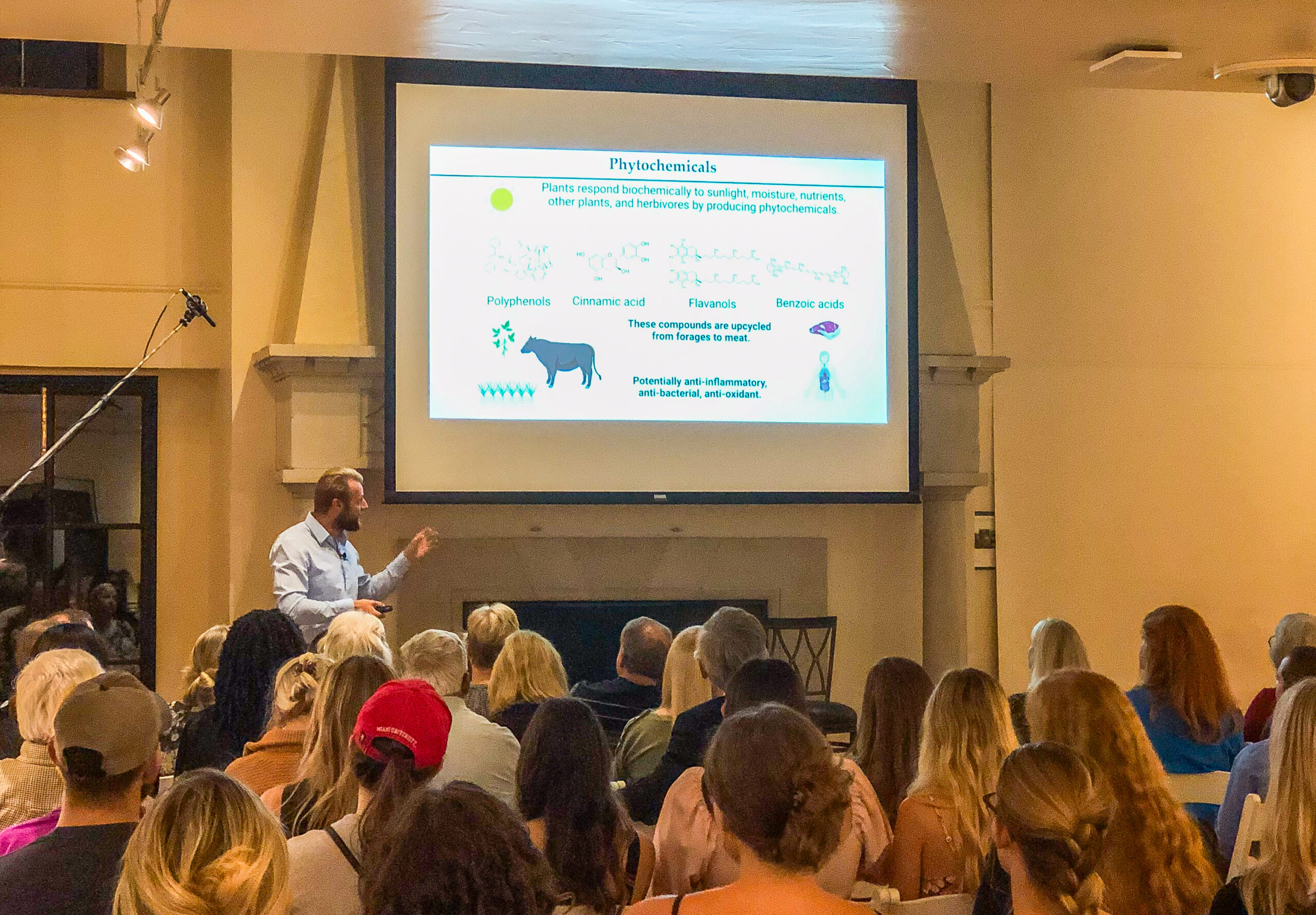
“It appears that just switching to a whole foods diet and minimizing intake of ultra-processed foods can get you 80% of the way to improving your health. The question is, can the increased presence of metabolites found in the agro-ecologically raised products have any impact on the additional 20%?”
Dr. Stephen Van Vliet
Based on our initial results, Dr. van Vliet stated, “It appears that just switching to a whole foods diet and minimizing intake of ultra-processed foods can get you 80% of the way to improving your health. The question is, can the increased presence of metabolites found in the agro-ecologically raised products have any impact on the additional 20%?”. Our research team hopes that once all of our samples (soil, plant, animal, and human) have been analyzed we are closer to helping answer this question.
